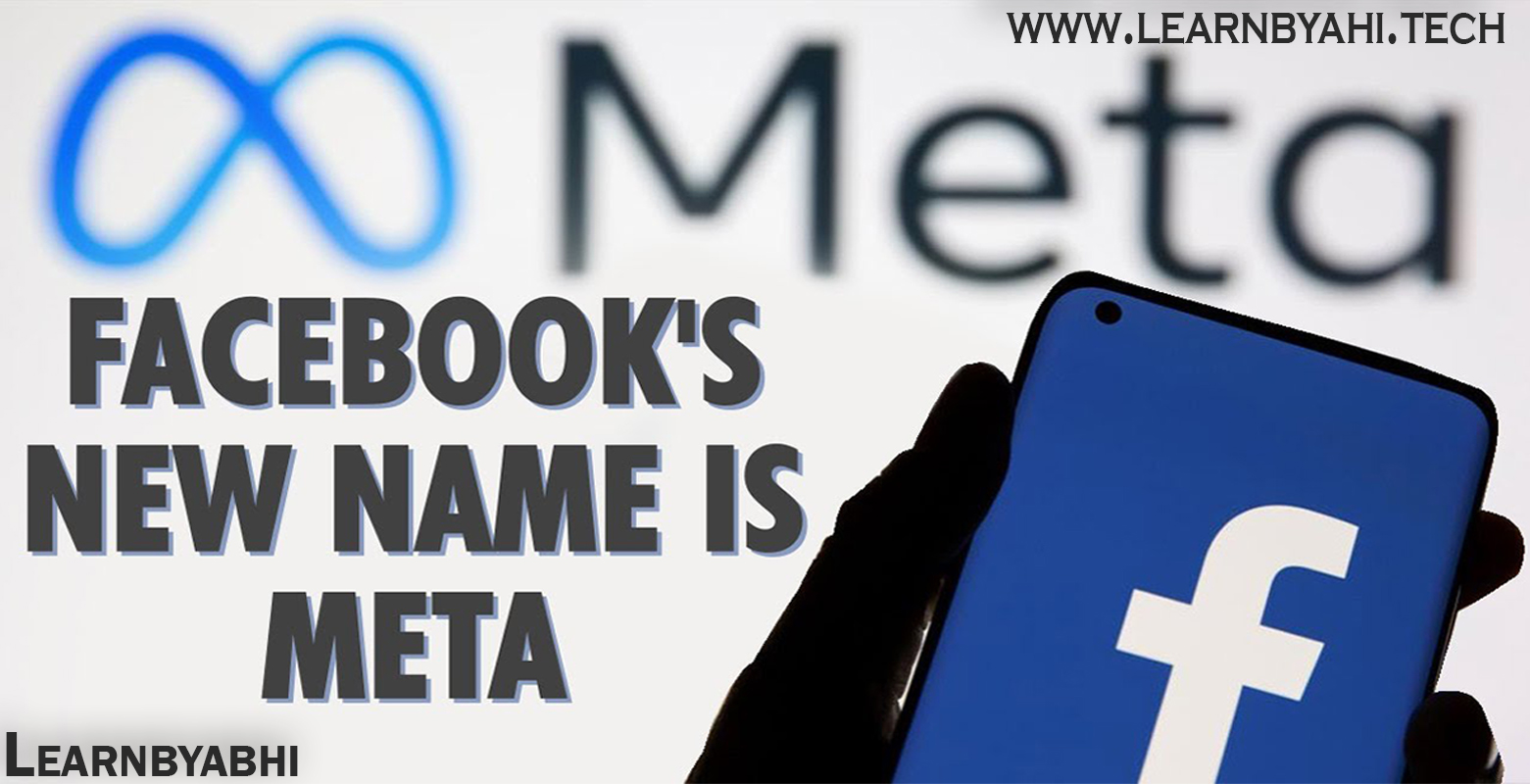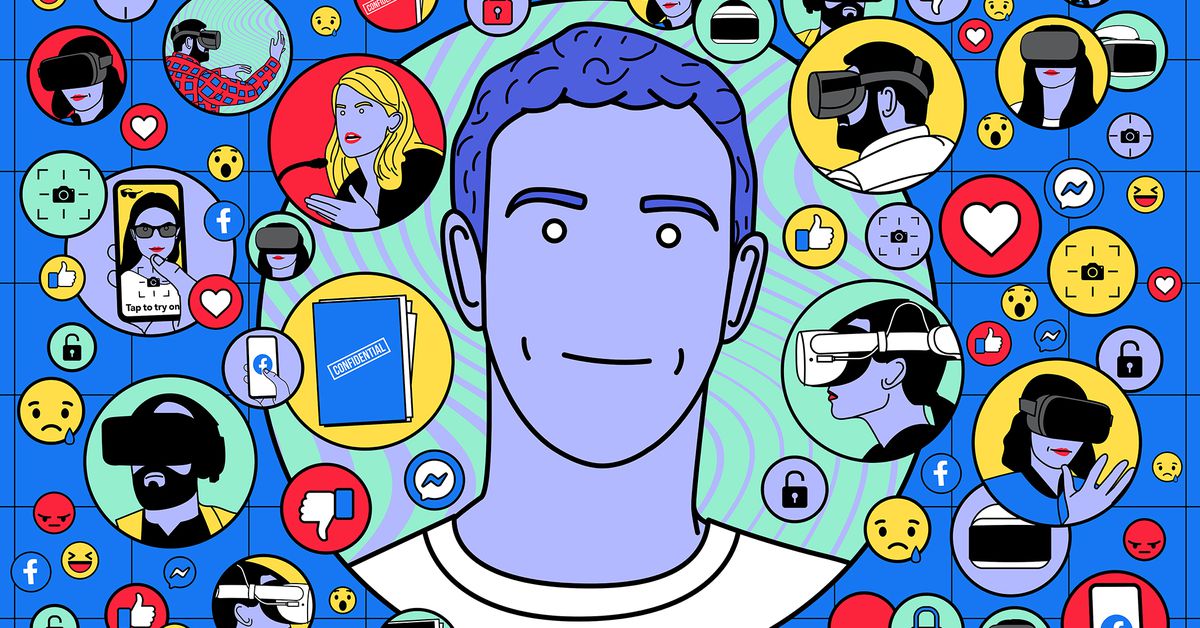Facebook, The company that owns platforms including Instagram and WhatsApp, made the radical decision to rebrand itself as Meta Platforms, or Meta for short.
The rebranding came as a surprise to regular consumers of the app, but Mark Zuckerberg, the founder of Facebook, claimed that the renaming was to signal that the company was branching out and was linked to more than one product. He added that Meta was a better representation of what the company is working toward.
What is Meta?
A founders letter was sent out on 28 October when the rebranding was announced, with a focus on the idea that the company want to be known for more than the Facebook service.
“Right now our brand is so tightly linked to one product that it can’t possibly represent everything we’re doing today, let alone in the future. Over time, I hope we are seen as a metaverse company, and I want to anchor our work and our identity on what we’re building towards,” Zuckerberg claimed in the founding letter.
“We just announced that we’re making a fundamental change to our company. We’re now looking at and reporting on our business as two different segments: one for our family of apps and one for our work on future platforms.
“Our work on the metaverse is not just one of these segments. The metaverse encompasses both the social experiences and future technology. As we broaden our vision, it’s time for us to adopt a new brand.”
This means that over time the company will take the spotlight off of Facebook, with the letter also claiming that over time people won’t need Facebook accounts to access other services.
Zuckerberg also mentioned that Meta means beyond, with reference to the company’s work to “move beyond what’s possible today”.
Why did Facebook change its name to Meta?
Kyla Lam, research analyst for ARVR/Wearables at IDC, told Trusted Reviews, while the letter makes sense it was also undeniably a reaction to whistleblower Frances Haugen’s ongoing testimonies against the firm.
“I think there are several reasons why Facebook renamed itself as Meta. First, facing numerous allegations on privacy and safety, Facebook is using the new parent name as a distraction to the public to talk about the rebranding despite of whistleblower Frances Haugen’s testimonies against Facebook,” sad Lam.
“Secondly, it helps to placate investors as its stock prices have been declining recently. Having a parent company streamlines operations, which suggests that there could be more transparency and clarity in evaluating its Family of Apps including Facebook and Instagram and Facebook Reality Labs including AR and VR related business segment independently.”
Lam added the name itself is likely reflective of Facebook’s desire to grow its reach and ad revenue.
“Lastly, changing its name to a term from a science fiction, ‘metaverse’ indicates Facebook’s commitment to universalizing this way of communication,” Lam went on to say.
“Over 97% of Facebook revenue comes from advertising, and while Facebook’s trust is slipping, its dedication to this metaverse project shows its ability to provide value creation in addition to advertisement.”
Do you think it was a good decision to rebrand as Meta?
Tammy Parker, principal analyst at Global Data, told Trusted Reviews while the move may not allay concerns about its security, the name could help Facebook grow.
“Renaming Facebook as Meta Platforms, or Meta for short, is a positive and forward-looking move for the company as it puts the focus on the evolving metaverse concept of virtual communities powered by AR and VR technologies,” said Parker.
“At the end of the day, the Facebook social network still retains its name, as do Instagram, WhatsApp and Messenger. But they will all be viewed as part of a larger entity under the Meta Platforms umbrella, which is positioned to transcend mere social media and networking.”
Meta will encompass all the platforms Facebook currently owns, including Facebook, WhatsApp, Instagram, Messenger and Oculus.
Marta Pinto, senior research manager at IDC, mirrored Parker’s sentiment, but added it won’t solve all of Facebook’s problems.
“In my view, the brand change makes sense for two main reasons: as Mark Zuckerberg pointed out indeed Facebook grew to be a tech company and the brand is not aligned with the company’s mission and vision,” said Pinto.
“On another less positive note, the constant negative disclosures around Facebook are quite damaging and erode the brand equity so a new name can come [in] handy.”
She added it will also need to deal with TikTok’s ongoing growth.
“This movement also shows a future-looking perspective from Mark Zuckerberg as TikTok showed faster growth than Facebook and Facebook needs to reinvent itself as not a social network (enough of those in the market now),” she said.
“The company grew to be an amalgamation of communication channels, online shopping, virtual rooms, social media, hardware manufacturer, services provider, advertising platform, etc. Clearly, a new strategy is behind the new branding and not a casual facelift after a less positive period.”
Have other big brands ever done this before?
 |
Parker told Trusted Reviews Facebook’s rebrand mirrors a similar move by Google in 2015.
“This situation is much like Google renaming itself Alphabet in 2015 and making the Google operation into an Alphabet subsidiary, signalling to investors, advertisers and users that the overall company would be exploring new markets and revenue opportunities,” said Parker.
Parker added that though its timing is suspect, the move is clearly one that has been on the works for quite some time.
Related :




